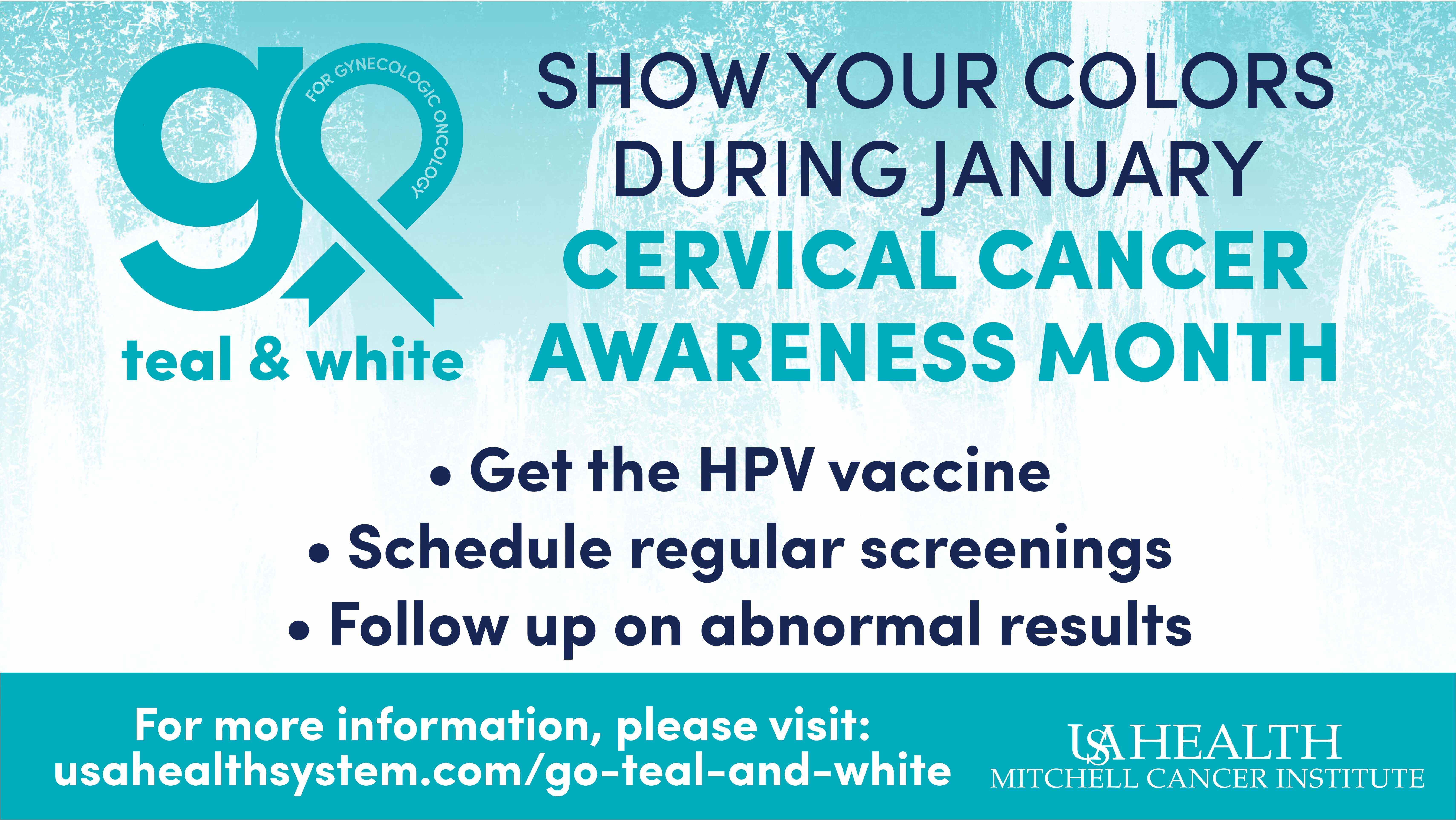USA Health Mitchell Cancer Institute raises awareness on cervical cancer prevention
MOBILE, Alabama (Jan. 13, 2025) – January is Cervical Cancer Awareness Month, a time to raise awareness about the importance of early detection and prevention of some cancers through use of the HPV vaccine. The USA Health Mitchell Cancer Institute (MCI) continues to be part of the national movement to promote education, resources and support for cervical cancer prevention, with a special focus on GO Teal and White Day on Tuesday, Jan. 14.
Although cervical cancer rates have significantly decreased in recent decades, thanks to the widespread availability of the HPV vaccine and advancements in screening, Alabama remains one of the states most impacted by the disease. The state ranks sixth in the nation for diagnosed cases and third for cervical cancer-related deaths.
“We still have a long way to go,” said Jennifer Y. Pierce, M.D., M.P.H., FACOG, gynecologic oncologist and division director of cancer control and prevention at MCI. “Cervical cancer is largely preventable, yet far too many women continue to face this disease due to a lack of awareness or access to essential screening and vaccination services. Cervical Cancer Awareness Month offers a vital opportunity to reinforce the life-saving power of prevention and early detection, while also showing our support for those impacted by this cancer.”
To honor Cervical Cancer Awareness Month, MCI is encouraging individuals and organizations to participate in GO Teal and White Day on Jan. 14 by wearing teal and white and decorating their businesses to help raise awareness. The GO Teal and White campaign’s name is a compilation of GO for Gynecologic Oncology, and teal and white, the colors that represent cervical cancer awareness.
Nearly all (99% of) cervical cancers are caused by the human papillomavirus (HPV), a common virus that can be prevented by the HPV vaccine, according to the Centers for Disease Control and Prevention (CDC). Early detection through Papanicolaou (Pap) tests and HPV screening can also save lives by identifying abnormal cell changes before they turn into cancer.
The HPV vaccine prevents more than six different cancers in men and women—among the most common cancers being cervical, head and neck, and anal—and is recommended for boys and girls ages 9 to 12 with catchup through age 26. Adults up to age 45 may get the vaccine as recommended by their doctor.
Women should begin cervical cancer screening at age 21, with a Pap test every three years until age 29. For women aged 30 to 65, a combination of Pap and HPV tests every three to five years is recommended, depending on individual risk factors. Even those who have received the HPV vaccine should continue regular cervical cancer screenings.
Cervical cancer can occur at any age but is most frequently diagnosed in women between the ages of 35 and 44. Risk factors include smoking, having multiple intimate partners, a family history of cervical cancer, or a weakened immune system.
To learn more about cervical cancer and MCI’s GO Teal and White campaign, visit usamci.com.

Stay Connected
Fill out and submit the form below to get regular updates from Mobile Chamber delivered directly to your inbox.






